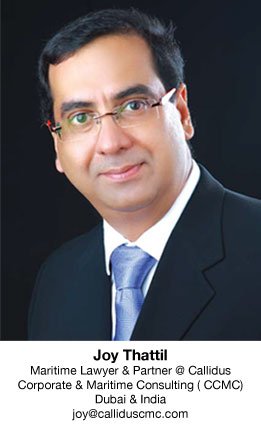 Maritime arbitration is being increasingly preferred as an alternative method of dispute resolution by the stakeholders in the maritime industry. Major maritime countries in the world have been upgrading their legal system with much emphasis on arbitration with the intention to project their country as an arbitration friendly forum. The contracting parties while deciding on the forum for arbitration basically seeks to resort to jurisdictions which provide for cost effective and speedier adjudicating procedure with finality of arbitration award, ensuring certainty in results.
Maritime arbitration is being increasingly preferred as an alternative method of dispute resolution by the stakeholders in the maritime industry. Major maritime countries in the world have been upgrading their legal system with much emphasis on arbitration with the intention to project their country as an arbitration friendly forum. The contracting parties while deciding on the forum for arbitration basically seeks to resort to jurisdictions which provide for cost effective and speedier adjudicating procedure with finality of arbitration award, ensuring certainty in results.
London continues to dominate the maritime arbitration scene. It has been noticed that the London Maritime Arbitrators Association stood head and shoulders above all other dispute resolution centres. One of the advantage of the arbitration in England is that unlike other jurisdictions, the English courts usually allow you to raise questions on a point of law. This right of appeal can in a way prove advantageous to the parties. The full implications of Brexit for arbitration in the UK are being closely monitored by the industry, but it does not appear to have had any immediate impact. For a number of reasons, London remains a very attractive venue for parties to choose as a seat for arbitration. Apart from London, Paris and Geneva are also much sought after arbitration jurisdictions.
Commercial arbitration in the United States originated in New York which has a long and rich history of supporting maritime arbitration and continues to be a leading maritime and commercial arbitration centre. Party autonomy is the hallmark of New York maritime arbitration. The parties are free to determine most procedural rules, and to select arbitrators (or the method of their selection) and the law to be applied. The arbitration awards are final and not subject to appeal save on narrow, largely procedural, grounds. A great majority of maritime arbitrations in New York are conducted under SMA (Society of Maritime Arbitrators) rules. Awards are enforceable in any country which is a signatory to the New York Convention on the Recognition and Enforcement of Foreign Arbitral awards and the Inter-American Convention on International Commercial Arbitration. Maritime awards in New York are usually final and binding. There are very few specific grounds under which an award can be vacated, and these are confined to the fairness of the arbitration procedure. A mistake in law or fact is generally not a ground for vacating an award. Motions to vacate, modify or correct must be made within three months of the date of the award.
Singapore is gaining global footprint in respect of maritime arbitration. Its established record of neutrality has contributed to its development. The courts in Singapore have offered maximum judicial support to arbitration and minimum intervention. The Singapore International Arbitration Centre (SIAC) stands out above the other regional arbitration centres. The country boasts a state of the art, integrated dispute resolution centre that houses first class hearing facilities and offices of top ADR institutes and dispute resolution professionals. Furthermore, Singapore has a judiciary that supports arbitration and there is a constant re-examination of legislation to ensure arbitration-friendly laws and processes are in place to promote and support arbitration. According to the International Chamber of Commerce (ICC) 2015 Report, Singapore has consistently been ranked as the number one preferred seat for arbitration in Asia and among the top five preferred seats globally. The International Arbitration Act and the Arbitration Act only set the framework governing arbitrations in Singapore. Consequently, the provisions are generally not mandatory insofar as parties are free to agree on the specific rules and procedures that bind them. This is in line with the fundamental principle of party autonomy in arbitration proceedings. However, the provisions relating to the enforcement, setting aside and/or appeal of the arbitral award are mandatory. The main arbitration organisations in Singapore are the Singapore International Arbitration Centre (SIAC), International Chamber of Commerce (ICC) and the Singapore Chamber of Maritime Arbitration (SCMA).The Singapore government has built an impressive infrastructure to support international arbitration in Singapore and has actively been behind efforts to promote Singapore as the obvious and best choice for arbitration in the region.